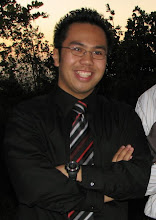 Above: "Hole in the walls" are some of the best places to eat. May I recommend the Oasis Cafe if you're ever on Key Biscayne, with its sophisticated year-round Christmas lights. But their Tilapia Filet & Rice is absolutely amazing.
Above: "Hole in the walls" are some of the best places to eat. May I recommend the Oasis Cafe if you're ever on Key Biscayne, with its sophisticated year-round Christmas lights. But their Tilapia Filet & Rice is absolutely amazing.ARE YOU THIRTY? - One of my patients.
Me: Ha, not yet!
I remember having a talk with one of my professors in Dominica about why med schools do two years of basic sciences. At that point in time, I thought that basic sciences education wasn't really worth my time. My naive self then was thinking, "How is the pathway of glycolysis going to really be used in a clinical setting? I'm not going to tell my patients about it."
Now looking back at things, without basic sciences, to me, learning the clinical sciences would be like learning things blind.
Basic science education has its hits and misses. It kinda sucks that with basic sciences information, practicality in real situations doesn't really come by until put together with clinical experiences. After Step 1, I probably could tell you a lot about what tests to run with a patient who comes in with concerns about breast cancer, but knowing that the the genes BRCA-1 and BRCA-2 are linked to that cancer won't tell me when to start yearly mammograms, what questions to ask from my patient to assess the situation, and how to reassure them.
Practicality can come in the form of algorithms (flowcharts which guide clinical thought). These are great when trying to organize one's thoughts take a proper, succinct history. Although for common conditions, they work well, but what if someone doesn't have a "textbook" case or condition? Here I see the benefits of basic science education, as the foundations of medicine can help clinicians to adapt to "new-found" cases. Because the processes within the human body are linked together, there has to be a way to explain non-textbook cases through the mechanisms learned in the basic sciences.
But that's not the only benefit... the human mind is one to learn more by links & context (I think I might have blogged about this before). So by knowing the mechanism as to how drugs work, how diseases appear, and the molecular background behind the human body can one make the puzzle pieces of medicine fit together a lot better. Integrating the basic & clinical sciences can contribute to better skills in diagnosis & treatment for our patients.
Although I still think of it as frustrating, taking time to memorize the glycolytic pathway in first semester is now something I am more appreciative of.
---
Today ended my 2 weeks at my current site in my family medicine rotation. On my last day, one family came in, displaced from another clinic that was closing down. One of the kids in the family was afraid of shots, so I offered some of my "insider tips" for surviving them, which made the patient smile. I could tell by the kid's expression that he/she was ready for immunizations when I left the room. When the family left, they all said, "We'll see you next time." And I said to myself, Damn, I won't be here next week. Here, I was about to start a strong foundation for a good relationship with this family. On the outside, I laughed, saying "I won't be here next week, but you'll see another student just like me." But on the inside, I had one of my first feelings of settling down; I started to feel how much I valued relationship bonding in medicine. I didn't want to move on.
Starting next week, I'll be moving on to a clinic run by a local homeless support group here in Miami. Four more weeks, and then the adventure will take me to what I think is the most critical rotation in my education...


No comments:
Post a Comment